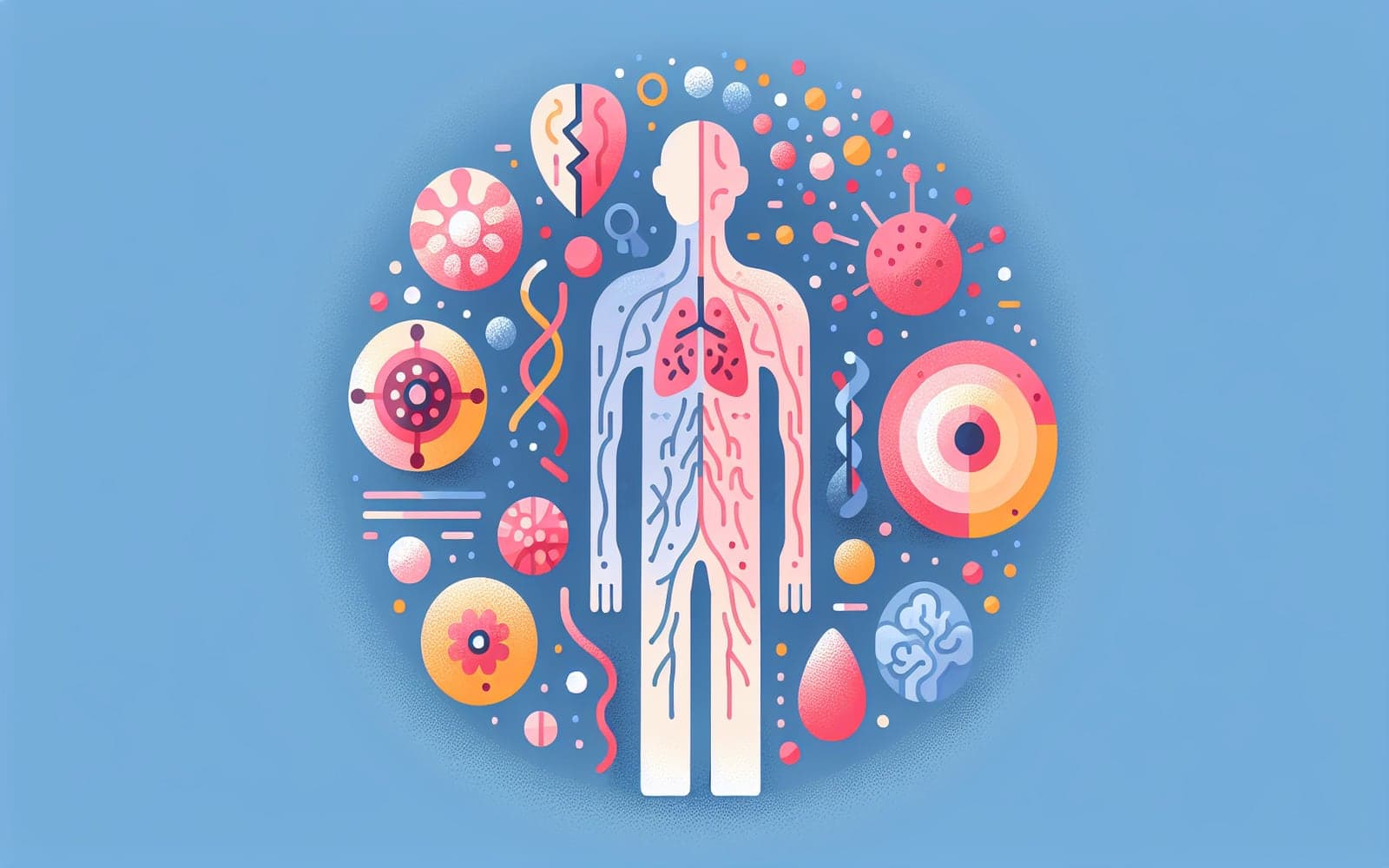Recognizing the Signs: Key Symptoms of Systemic Sclerosis
Recognizing the Signs: Key Symptoms of Systemic Sclerosis
Early Detection Matters
Systemic sclerosis, or scleroderma, can be tricky to spot early on. Knowing the signs can lead to faster diagnosis and better outcomes. Let's explore the key symptoms to watch for.
Contents
- Skin Changes: The Telltale Sign
- Raynaud's Phenomenon: Cold Fingers and Toes
- Beyond the Skin: Internal Symptoms
Skin Changes: The Telltale Sign
The most noticeable symptom of systemic sclerosis is skin thickening. It often starts with puffy or swollen fingers, then progresses to hardening and tightening of the skin. This can affect the hands, face, and other parts of the body, sometimes limiting movement.
Raynaud's Phenomenon: Cold Fingers and Toes
Almost all people with systemic sclerosis experience Raynaud's phenomenon. This causes fingers and toes to turn white or blue in response to cold or stress. It can be painful and, in severe cases, lead to sores or tissue damage.

Beyond the Skin: Internal Symptoms
Systemic sclerosis can affect internal organs too. Common symptoms include heartburn or difficulty swallowing due to digestive issues, shortness of breath from lung problems, and joint pain or stiffness. Some people may experience kidney problems or heart issues.
FAQs
Is fatigue a symptom of systemic sclerosis?
Yes, many people with systemic sclerosis experience significant fatigue.
Can systemic sclerosis cause weight loss?
Yes, due to digestive issues and loss of appetite.
Are all symptoms present in every case?
No, symptoms can vary widely between individuals.
Can symptoms come and go?
Some symptoms may fluctuate, but overall progression is usually gradual.
When to Seek Help
If you notice persistent skin changes, especially with Raynaud's phenomenon or other symptoms, it's important to consult a healthcare provider.
Additional References
- Denton CP, Khanna D. Systemic sclerosis. Lancet 2017; 390:1685.
- Sandusky SB, McGuire L, Smith MT, et al. Fatigue: an overlooked determinant of physical function in scleroderma. Rheumatology (Oxford) 2009; 48:165.
This article has been reviewed for accuracy by one of the licensed medical doctors working for Doctronic.











